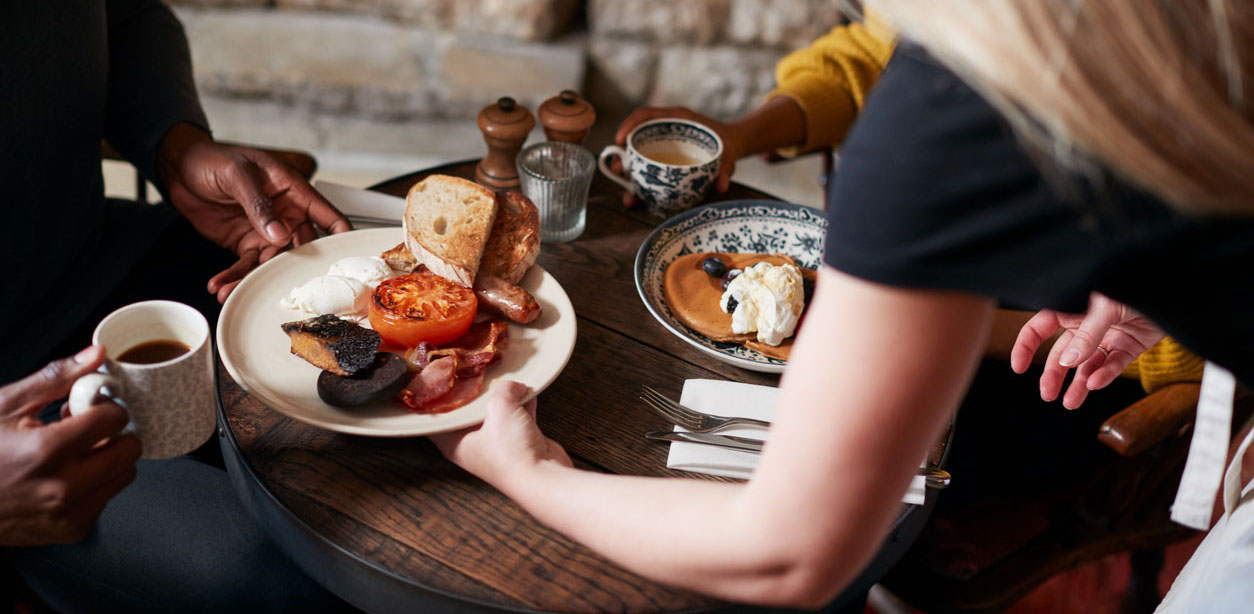
A recent mural in Dublin, Ireland sees Doc wisely advising Marty McFly to not, whatever happens, set the clock for 2020. Sage advice for any traveller i’m sure we all agree. Unfortunately for those of us without a time machine though, we’re stuck here and all we can do is plan for the better times ahead.
Of course, planning usually requires an amount of foreknowledge based on market confidence or historical forecasts. Without that, all is just speculation, nothing but a guessing game.
So the question for those in the lodging industry is just how they are supposed to absorb the additional costs that the pandemic is bringing whilst preparing for an uncertain future.
The Cost of Covid Measures
By and large the initiatives being introduced to help combat the spread of Covid-19 remain consistent around the world. However, many B&B’s are simply unable to introduce the required social distancing required to remain compliant. Added to that are the additional operating costs which are straining an industry that has already been heavily impacted. This has affected many businesses which have been forced to make changes such as:
- Closing common rooms and areas.
- Employing extra staff or working longer hours in order to meet more stringent hygiene standards.
- Acquiring Covid related signage for customers.
- Shelving some of the little ‘extras’ like books and magazines.
- Axing breakfast in order to remain compliant.
- Implementing digital technology to decrease direct contact between guests and staff.
- Providing masks and sanitiser to guests along with single use toiletries.
- Offering additional training to staff on Covid preparedness.
- Making sure that staff have access to hazmat suits and other equipment.
A light purse is a heavy curse as they say. If you’re finding it tough to cover the extra costs act now and reduce your operating costs in some of the following ways:
If You Can’t Make Money, You Have to Save Money…
It’s obvious but it’s true. Examine all the ways you might lower costs and save money. Look at your overheads in detail and see which of them could potentially get the chop. Maybe it’s your paid promotion marketing, or excessive spending on utilities. Perhaps you can get by with less staff hours or spend less money on your Property Management System. It’s worth mentioning that Sirvoy for example, has recently cut their monthly package to a tiny $9 per month to help aid smaller businesses like Bed and Breakfasts. All these little things, will be sure to make a big difference in the long run.
In the midst of every crisis, lies great opportunity…
Albert Einstein
…Or You Could Spend Money
It might sound counterproductive but many B&B owners are preparing for the future by actually spending money now. For those wanting to start or finish a refurb, for example, this could be the perfect opportunity. While business is quiet, why not take advantage of some unbeatable discounts being offered by many furniture suppliers and interior designers? Many stores have slashed costs by up to 70% to move excess stock accumulated during the pandemic, and generate new business.
Delay Payments
If you’re really struggling to make ends meet, talk to your providers and see if you can reach an agreement to pause or spread the cost of your repayments over a longer term. Many suppliers are likely to be more sympathetic to your cause than ever, as they are either in the same boat or dealing with many other customers who are in the same situation.
Tap into Government Grants
Most governments have been making grants available as part of their hospitality recovery plans. Some of these grants are substantial and may include staff supports that will cover a large percentage of wages. These grants are subject to change almost monthly so don’t assume that you know what’s available, keep up to date with your local council to make sure you don’t miss out.
What Does the Future Hold for B&B’s?
As Albert Einstein once said, ‘in the midst of every crisis, lies great opportunity’. And opportunities there certainly are. According to McKinsey industries, in early May, occupancy rates were less than 15% for luxury hotels and about 40% for economy. This indicates that smaller and more economical room options such as B&B’s will recover much faster than larger hotels. The same article points out that these are better able to tap into segments of demand that have remained healthy despite travel restrictions, like long stay guests and truck drivers.
All the evidence seems to point to another outcome that will benefit smaller outfits like B&B’s. As travellers begin to move about it again it appears that the majority are favouring smaller boutique accommodation over large hotel chains. With social distancing becoming the norm, this trend looks set to continue for the foreseeable future. It’s certainly encouraging to know that although this is far from over, there are such obvious and positive signs of a market rebound. And that for B&B’s at least, the future is looking bright.




